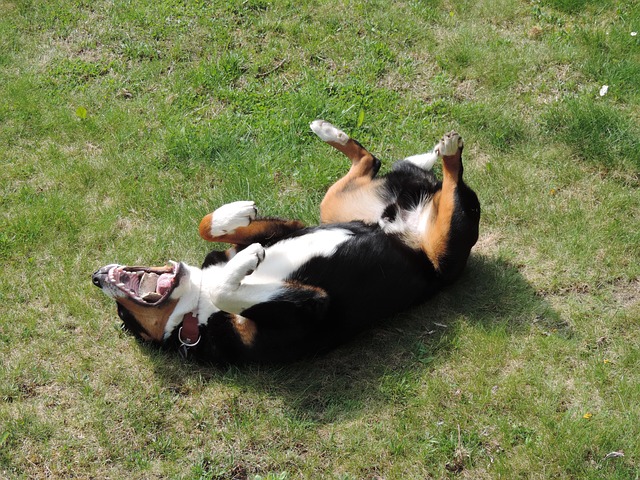
An umbilical hernia occurs when the lining, fat, or organs of the abdomen pass through an opening in the abdominal wall. It’s seen in newborn pups, as it’s caused by a failure of the umbilical ring to close after birth. Genetic conditions are often to blame but there are other causes. They’re often found in Airedale Terriers, Pekinese, and Basenji breeds.
Symptoms of Umbilical Hernia in Dogs
The hernia will be visible on the dog’s abdomen, and looks like swelling under the navel. It can protrude further during activities like standing, barking or straining. Your dog may also experience:
- Noticeable pain
- Warmth at the swollen site
- Vomiting
- Lack of appetite
- Malaise or depression
Types
Reducible
A reducible hernia is usually smaller than an irreducible hernia. The protrusion is only abdominal lining or fat, and may be simply pushed back into the abdomen by your vet. Your dog isn’t likely to experience pain or other symptoms aside from the swelling under the navel.
Irreducible
This type of hernia is larger, and occur when part of one or more abdominal organs pass through the opening in the abdominal wall. The organs can become trapped, which will make it difficult for them to function. It may even cause blood flow to be completely cut off from the organ, which will result in the death of organ tissue. Your dog will likely show more symptoms and may be in pain.
Causes of Umbilical Hernia in Dogs
Before being born, all puppies will receive nourishment from their mothers via an umbilical cord – the opening from their body to the cord is called the umbilical ring. The ring typically closes on it’s own after birth, but for reasons that remain unknown, some dogs have rings that fail to close. When the contents of the abdomen pass through the opening, the site of the open umbilical ring appears swollen.
Diagnosis of Umbilical Hernia in Dogs
Umbilical hernias are usually pretty easily diagnosed. Your vet will probably be able to tell as soon as they feel the site. If they determine that the hernia is an irreducible umbilical hernia, an x-ray or ultrasound will be necessary to see if any organs are trapped, and how severe the entrapment is.
Treatment of Umbilical Hernia in Dogs
Hernias measuring less than a 1/4 inch in puppies under six months old are likely to close on their own. If the hernia hasn’t closed by the age of six months, surgery may be required, and will likely be necessary in the case of an irreducible hernia.
During surgery, scar tissue formed around the opening is removed, organs that have become entrapped will be moved to their proper places, and the hernia will be closed with sutures.
Recovery of Umbilical Hernia in Dogs
If the hernia is left to close on it’s own, it’s important to keep an eye on it for changes. If it hasn’t closed by the age of six months, talk to your vet.
If your dog underwent surgery for the issue, carefully follow instructions given to care for it to ensure a full recovery. Your dog will need time and rest, and it’s important to monitor him for bad reactions. Your vet may advise you that some reactions, like sleepiness, lack of coordination, coughing or crying may be normal for the first few days. Check the incision site for signs of infection like drainage and redness daily. Should the site become infected, you’ll need to see your veterinarian as soon as you can. If the incision doesn’t seem to be holding, or any intestinal material protrudes through it, seek medical attention for your dog immediately.
Feed carefully during the first few days after surgery. Your dog may vomit, but his appetite should be back to normal in a few days. Limiting his activity will help ensure proper healing – this means no running or jumping.
